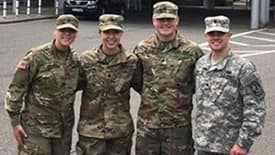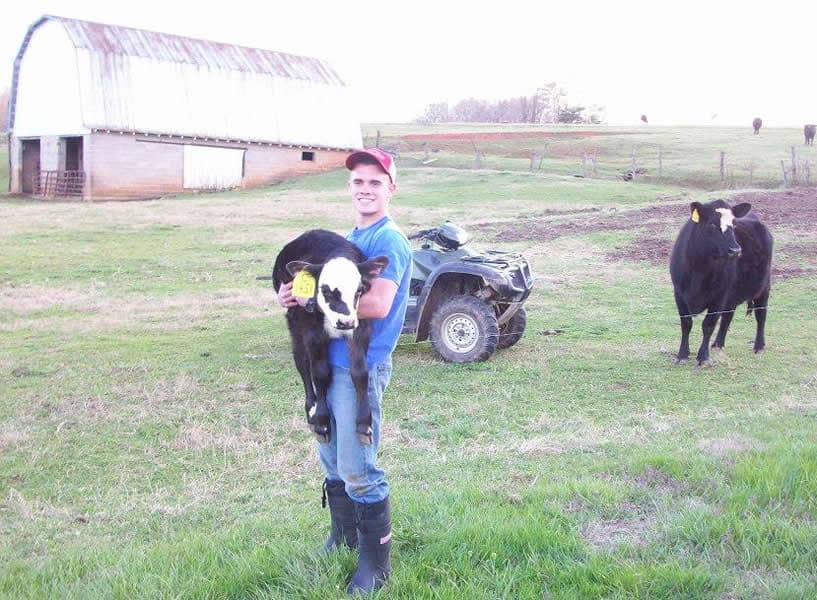Nursing student honors family’s history of military service, completes special Army training program

Pilot Mountain, North Carolina, is a small town at the base of the Blue Ridge Mountains; from there, it is about 4,200 miles to Landstuhl, Germany, home to the United States’ largest international military hospital.
Despite the distance from the rural community he calls home, Luke Merritt knew he wanted to be stationed in Germany during his time in the Army Nurse Corps’ Nurse Summer Training Program (NSTP), which allows ROTC nursing students to gain clinical experience in Army hospitals throughout the United States and Germany. The program is intended for rising seniors and provides personal training in areas like medical-surgical wards, intensive care units and emergency departments.
Merritt, who grew up on a cattle and horse farm, said his interest in the caring professions began while tending to his animals. Those early farm experiences led Merritt to dream of becoming a veterinarian. But, he also dreamed of joining the long list of family members who served in the military.
“My dad’s dad was in Vietnam, and my mom’s dad was in Korea, my great grandad was in World War I, and we could go all the way back to the Revolutionary War—everybody’s served, so I was always set on doing something in the military, and I was always set on doing something medical,” Merritt said with pride.
A degree in nursing offered the best of both worlds—an opportunity to work in the medical field while serving his country. He received an Army ROTC scholarship and became known as a “unicorn” among the group—a term used to describe the rarity of a nursing cadet in the program.
 After applying to NSTP and requesting Germany as his station, Merritt was selected to serve in the emergency room (ER) at Landstuhl Regional Medical Center, where soldiers wounded in Africa, Eastern Europe and the Middle East are sent. During a four-week stint, he worked 12- to 14-hour days treating acute injuries, sick children and stabilizing patients with more serious conditions.
After applying to NSTP and requesting Germany as his station, Merritt was selected to serve in the emergency room (ER) at Landstuhl Regional Medical Center, where soldiers wounded in Africa, Eastern Europe and the Middle East are sent. During a four-week stint, he worked 12- to 14-hour days treating acute injuries, sick children and stabilizing patients with more serious conditions.
“I did everything. The military’s philosophy is you watch one, do one, teach one and that applied to everything from IVs to hanging medications to new admission assessments and discharges.”
Long hours in the ER gave Merritt valuable hands-on experience. He said the practice of fundamental skills, along with the relationships he developed while overseas, were the two most important outcomes from the program. Merritt formed close bonds with a fellow cadet from Indiana that attended the program and with an injured Air Force member who had been stationed in the Middle East.
“It’s true for the Army and the military in general: You can literally meet people from all over the world that you know you can always depend on,” said Merritt. He added that same culture of support exists within UNC Charlotte’s ROTC and nursing programs.
Managing the demands of being a nursing student and ROTC member was challenging, but peers, cadets, faculty and staff all have supported his decision to be a “soldier first, nurse second.”
Merritt, who graduates in December 2018, said he hopes to be stationed at Fort Bragg, North Carolina.
Photo (top): Merritt, right, with fellow students from the Army Nurse Corps’ Nurse Summer Training Program.